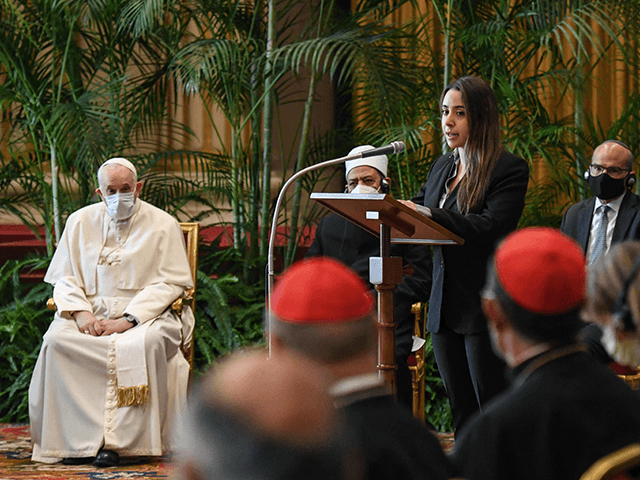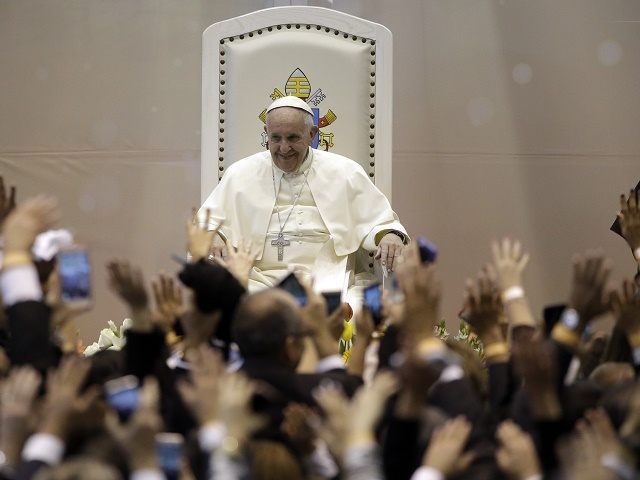ROME — The great takeaway from the coronavirus pandemic is a rejection of borders and walls, Pope Francis told the BBC on Friday morning.
“Climate change and the Covid-19 pandemic have exposed our deep vulnerability and raised numerous doubts and concerns about our economic systems and the way we organize our societies,” the pope asserted in a special audio message for the launch of the COP26 Climate Conference.
“The most important lesson we can take from these crises is our need to build together, so that there will no longer be any borders, barriers or political walls for us to hide behind,” he declared.

Pope Francis (L) and Egyptian Islamic scholar and the current Grand Imam of al-Azhar mosque, Sheikh Ahmed Al-Tayeb (Rear C partly hidden) listen to a participant’s speech during the meeting “Faith and Science: Towards COP26” on October 4, 2021 in The Vatican, sending an appeal to participants in COP26 for action. (ALESSANDRO DI MEO/POOL/AFP via Getty Images)
Francis said the pandemic and climate crisis have together taken away humanity’s sense of security, making people feel powerless and lacking control over their lives.
“We find ourselves increasingly frail and even fearful, caught up in a succession of ‘crises’ in the areas of health care, the environment, food supplies and the economy, to say nothing of social, humanitarian and ethical crises,” he stated.
These crises are all profoundly interconnected, he stated, and call for “the ability to formulate plans and put them rapidly into action, to rethink the future of the world, our common home, and to reassess our common purpose.”
Pope Francis to Celebrate ‘Mass for Migrants’ in Vatican https://t.co/YQLw6FAYsP
— Breitbart London (@BreitbartLondon) July 1, 2019
These crises also present us with the need to take “radical decisions that are not always easy,” he contended, while urging his hearers not to retreat into “isolationism, protectionism and exploitation.”
Speaking more directly about the environment and climate change, the pontiff cited a “scientist” who told him some time ago: “If things continue as they are, in fifty years’ time my baby granddaughter will have to live in an unliveable world.”
“We cannot allow this to happen! It is essential that each of us be committed to this urgent change of direction, sustained by our own faith and spirituality,” the pope insisted.
“The political decision makers who will meet at COP26 in Glasgow are urgently summoned to provide effective responses to the present ecological crisis and in this way to offer concrete hope to future generations,” Francis concluded, while inviting everyone to offer a collective response to the “unprecedented threat of climate change and the degradation of our common home.”

COMMENTS
Please let us know if you're having issues with commenting.